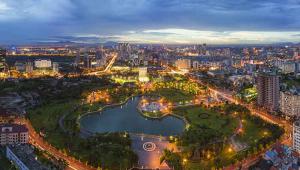The recommendation comes from the World Bank and Vietnam Academy of Social Sciences, which found at least 5.6 million people in five Vietnamese provinces lack ho khau – that is, permanent residency status. This include more than a third (36%) of people living in Ho Chi Minh City and 18% in the capital Hanoi.
Most of these people work in the private sector, particularly manufacturing and for foreign firms. However, they have limited access to public schools, health insurance and other government services, such as the registering of motorcycle.
Achim Fock, World Bank acting country director for Vietnam, said: “This study shows that the ho khau system has created inequality of opportunity for Vietnamese citizens.
“Further reforms could ensure that migrants have the same access to schools, health care, and employment in the public sector as everyone else. That will encourage people to move to cities and support Vietnam’s economic growth and structural transformation.”
Ho khau was introduced in Vietnam 50 years ago as a mean of controlling migration and bolstering public security.
But Dang Nguyen Anh, vice president of the Vietnam Academy of Social Sciences, said it was now outmoded, especially given the major changes seen in the Asian country as it moves towards a socialist market economy.
“The system should be replaced by a more scientific and modern tool to make people's lives easier and inclusive,” he said.













